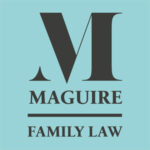Continue reading "Disclosure: Behind closed doors"
Disclosure: Behind closed doors

The parties were siblings and beneficiaries of a trust established by their parents. In addition, the defendants were also the trustees. The claimant applied to appoint a judicial trustee in place of the defendants on the basis that the defendants had engaged in conduct that appeared to have been in breach of their duties as trustees or may have been dishonest. The parties had previously entered into an arbitration agreement before the Beth Din of the Federation of Synagogues. The court and the tribunal had previously determined that the tribunal had jurisdiction to consider the claim. T...
On 6 June 2017, Ms Leeson died in Denmark. Her husband, the defendant, was prosecuted and ultimately acquitted of her murder. After such acquittal, civil proceedings were issued alleging inter alia that the defendant unlawfully killed Ms Leeson and the inquest proceedings resumed. In the civil proceedings, the parties were ordered to and did produce a schedule of agreed facts. Such schedule was based on the disclosure in the civil proceedings, including third-party disclosure from the police. The claimants’ solicitors acting in the inquest proceedings asked for permission that s...
William Reid (the deceased) died on 20 March 2018. He left a will dated 20 December 2004 and codicil dated 8 February 2012 (together the will), which appointed the claimants, Nicholas Parsons and Mark Hill (respectively the deceased’s solicitor and land agent), as executors and trustees, and left the residuary estate on discretionary trusts for classes including his children and grandchildren. The defendants, Stephen Reid and Judith Shaw, were the deceased’s children. The deceased also left a letter of wishes which expressed the wish that payments be made to Stephen reflecting various mo...
The parties were siblings. The application concerned the estate of their mother, PF. PF had divorced from the parties’ father in 1980, after which PF had continued to live in a five-bed council property (the Property) with the children until they grew up. In 2004, PF acquired the freehold for £192,000. At some point, PF adopted three other children.
In around 2009 (on the defendant’s (D’s) evidence), D moved PF out of the Property and into one of D’s properties. According to the claimants’ evidence, PF was already showing signs of paranoia, and in 2015 D was taken to court by a ne...

Continue reading "Disclosure: Behind closed doors"

Continue reading "Disclosure: Considering entitlement"

Continue reading "Disclosure: It’s a privilege"

Continue reading "Disclosure: No place to hide"

Continue reading "Disclosure: Privileged upbringing"

Continue reading "Disclosure: Uncovering trustees‘ reasons"